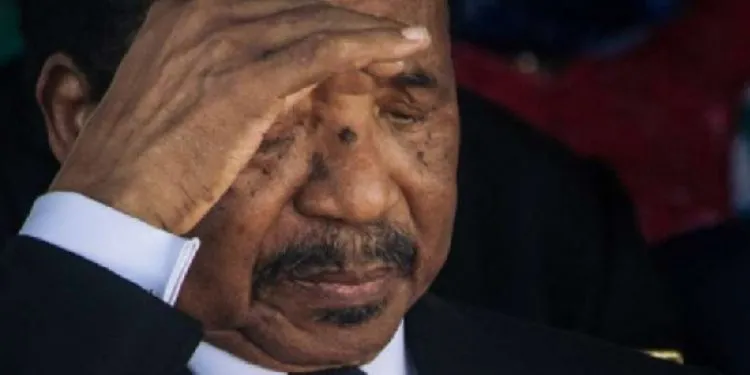President Paul Biya has reached a significant milestone, having spent 41 years in power as the leader of the Republic of Cameroon. His ascendancy to the presidency occurred in 1982 after the resignation of the Republic’s first president, Ahmadou Ahidjo.
However, this prolonged tenure has been marked by a deep and ongoing crisis in the English-speaking regions of Cameroon, which has escalated into a deadly conflict since 2016. Thousands of lives have been lost, tens of thousands have been displaced, inter-village conflicts have erupted, schools have been disrupted, and villages have been burned.
Many people blame President Biya for this crisis because it is believed that his inaction allowed a peaceful protest started by English-speaking teachers and lawyers who demanded recognition and rights for the Anglophone minority to turn into a full-blown conflict.
The Roots of the Crisis
The roots of the Anglophone crisis can be traced back to the colonial era when the League of Nations divided the former German Kamerun between the English and the French. With two colonial legacies, the two Cameroons evolved separately and gained independence on different dates. French Cameroon became independent on 1st January 1960. A UN-sponsored plebiscite for English Cameroons or Southern Cameroons held on 11th February 1961, saw the population voting massively to join the already independent Republic of Cameroon.
On October 1st, 1961, Southern Cameroons gained independence as West Cameroon and became part of a two-state federation. The dismantling of the federation by Paul Biya’s predecessor Amadou Ahidjo, in 1972 laid the groundwork for the current crisis.
In the early years of Biya’s regime, he escalated the situation by changing the country from the United Republic of Cameroon to the Republic of Cameroon, the name French Cameroon had at independence. After coming to power in 1982, President Biya faced resistance from disgruntled Anglophone elites who believed they were marginalised. This discontent culminated in 1984, when Gorji Dinka declared the independence of the English-speaking regions, calling it the Republic of Ambazonia. However, this declaration failed to gain widespread support in these regions.
Teachers and Lawyers Demand Change
The turning point came in 2016 when English-speaking lawyers and teachers highlighted the erosion of the Anglo-Saxon legal and educational systems due to the dominance of the Francophone system. Their demands, including the redeployment of legal personnel and a return to a two-federation system, were ignored by the Biya government.
In late 2016, lawyers and teachers initiated a sit-in strike, boycotting court sessions and classrooms in the two Anglophone regions. In a peaceful protest in Buea, South West Cameroon, lethal force was unleashed by the government, brutalizing lawyers. This led to the creation of the Cameroon Anglophone Civil Society Consortium, mobilizing various groups in the Anglophone regions.
Failed Dialogues, Crackdowns
Despite government promises of dialogue, negotiations with lawyers and teachers ended in a deadlock. Subsequently, the government banned the activities of the Consortium, leading to the arrest and detention of its leaders. Agbor Nkongho, one of the prominent leaders, was arrested and detained, charged with terrorism before the military court in Yaounde in January 2017. Other leaders, like Wilfred Tassang, managed to escape to Nigeria
The Path to Armed Struggle
The situation took a more violent turn when separatist leaders, including Tassang Wilfred, who had escaped to Nigeria, declared a total independence struggle. In January 2018, these leaders were arrested and deported to Cameroon for prosecution under questionable legal circumstances. The choice of armed struggle then swept across the two regions.
President Biya’s Declaration of War
In response, President Biya declared war against the separatists, describing them as terrorists. The conflict escalated with sporadic attacks against state forces in the Anglophone regions. The humanitarian consequences have been devastating, with thousands of schools closed and millions of children out of school. The conflict has led to internal displacement and a growing need for humanitarian assistance.
Humanitarian Crisis and Global Concerns
The conflict has taken a heavy toll, with over 6,000 people killed, according to a report from the Global Center for the Responsibility to Protect. Both security forces and separatists have been accused of committing atrocities, leading to deep divisions among Cameroonians and a sense of failed leadership in a conflict that many describe as senseless. President Biya’s 41-year legacy is inextricably linked to this ongoing crisis.



